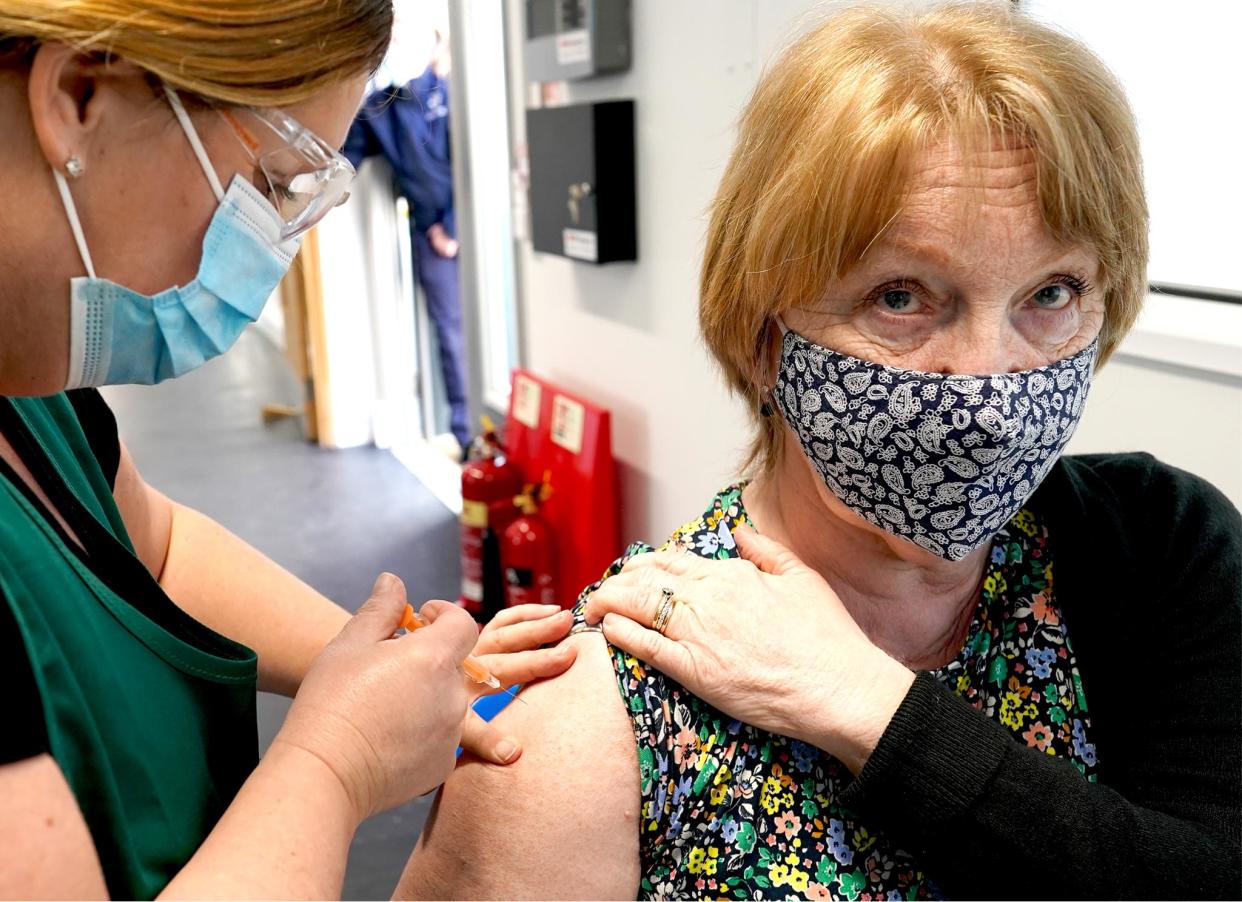Young, poor and black Britons most hesitant about getting Covid vaccine, new statistics show

A majority of Britons back the Covid-19 vaccines
(Getty)Younger adults and those living in poorer neighbourhoods and black people have the highest levels of vaccine hesitancy, new survey data from the Office for National Statistics has shown.
The vast majority of Britons back the Covid-19 vaccines and are keen to be inoculated, with more than nine out 10 people being positive about the jab.
But the ONS said data from a survey between 13 January and 7 February revealed reluctance among less than 10 per cent of the population.
It found more than 4 in 10 of black or black British adults reported vaccine hesitancy: the highest of all ethnic groups while adults aged 16-29 were most likely to report hesitancy, at around 1 in 6 or 17 per cent.
Adults living in the most deprived areas of England were more likely to report vaccine hesitancy at 16 per cent, compared with 7 per cent of adults in the least deprived areas of England.
Watch: Supercomputer shows effectiveness of double masking
This has been evident in the take up of the vaccine among some deprived areas of the country which have struggled to vaccinate everyone in priority groups. Even among NHS and social care staff there has been reported hesitancy over vaccines, particularly among BAME staff.
Vaccine uptake, especially among at risk groups, is vital to reduce the number of severe cases of Covid-19 and admissions to hospitals and deaths.
The data is based on four weeks of answers to the ONS opinions and lifestyle survey.
Tim Vizard from the Office for National Statistics said: “Over the past three months, we’ve seen people become increasingly positive about the COVID-19 vaccine, with over nine in ten adults saying they would have it, if offered, or having already had it.
“Of those who are hesitant about receiving the vaccine, it is younger and black adults who are most likely to say this, with concerns around side effects, long term effects and how well the vaccine works being the most common reasons.”
The ONS said of the 9 per cent who were ‘hesitant’ included people who did not know, or did not want to say how the felt about the vaccine as well as those who were more clearly against having it.
The survey also found parents living with a child who was under four were the most likely to report vaccine hesitancy at 16 per cent compared to eight per cent among non-parents or parents not living with a child.
The top three negative reasons given about the vaccine were consistent across all groups and were around fears over side effects, long term effects on health and “how well the vaccine works”.
More than 21 million people have now been given a first dose of the Pfizer/BioNtech or Oxford/AstraZeneca vaccine with no concerns raised by medical regulators over their safety.
In London, 13 per cent of adults reported vaccine hesitancy; this compared with 7 per cent of adults in the South West. Compared with London, rates of vaccine hesitancy were also lower for the South East at 8 per cent, East of England at 9 per cent and East Midlands at 9 per cent.
Watch: Report finds obesity major factor in COVID-19 deaths
Read More
Guilt, envy, distrust: Vaccine rollout breeds mixed emotions
Vaccine rollout: People aged 56 to 59 invited to book Covid jab
Pfizer or AstraZeneca? Vaccine snobbery is becoming a serious problem

 Yahoo Movies
Yahoo Movies 
